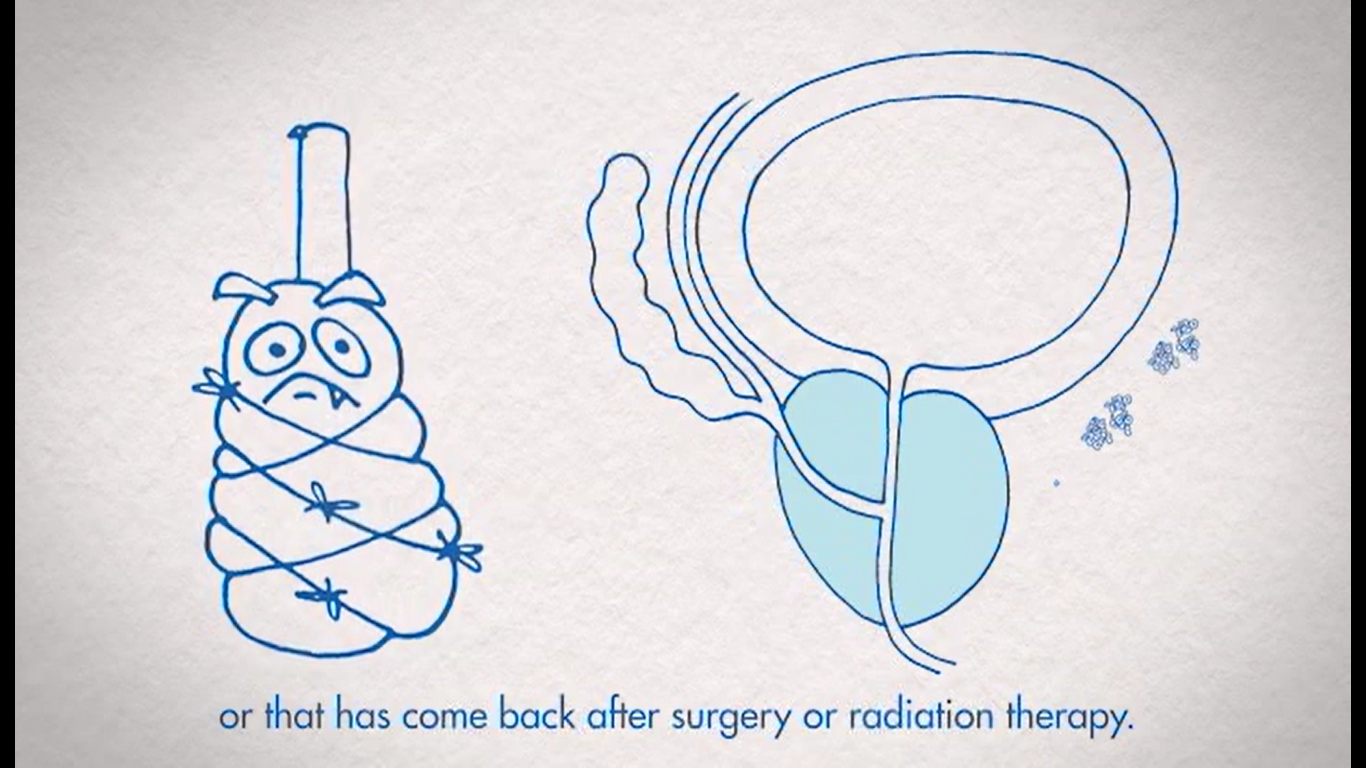About 50 to 80% of men who receive hormone therapy for prostate cancer will feel hot flashes during their treatment, just like women who have to go through the throes of menopause. It is a sudden sensation of heat in the face and chest which then spreads to the rest of the body in waves, lasting from 2 to 30 minutes and even longer.
You may be sweating, blushing, shivering, feeling your heart pounding, or even feeling anxious. You might feel like you’re “on fire,” or you might have a cold sweat. Some men wake up sweating at night. These hot flashes that occur at night called “night sweats” can disrupt your sleep.
The exact cause of hot flashes is unknown, but it may be related to how hormones interact with the hypothalamus, the part of your brain that controls body temperature. When testosterone levels are low, your brain will send out false signals and set in motion a whole system to try to “cool” your body at all costs.
Hot flashes usually go away when your body gets used to the treatment or when the treatment is stopped, but there are a number of things you can do on a daily basis to manage them better.
First, it is essential to develop or maintain healthy lifestyle habits such as a balanced diet, good hydration, regular physical activity, no smoking (try if you are a smoker) as well as achieving or maintaining a healthy weight.
Second, do not take any herbal medicine without discussing it with your doctor. You must inform her/him of your intention to take natural products as many of them may interact with your treatment or any medications you are taking (with and without a prescription).
Now that the most important is covered, here are some tips for dealing with this side effect.
Your surroundings
- Dress in layers so you can take them off if you are hot (e.g. a zippered jacket comes off quickly).
- Wear looser clothing made of lighter fabrics such as silk or cotton instead of synthetic fabrics.
- Stay in air-conditioned or well-ventilated areas (e.g. with a fan or an open window).
- Put a towel or quilt on your bed if you sweat a lot at night.
- Keep a change of cotton t-shirts next to your bed that you can put on if you have night sweats.
- Take a shower or bath with lukewarm water. Avoid hot water.
Your diet
- Avoid spicy foods or meals – They increase the feeling of heat, something you are trying to avoid when you are already struggling with hot flashes. So take it easy with the hot peppers and hot sauce.
- Cut down on hot drinks and those that contain caffeine – Caffeine, found in coffee, of course, but also in some teas, chocolate and cola-type soft drinks, is a stimulant that increases your heartbeat and vasodilation effect. Go for decaf.
- Sip cold or icy drinks – Sipping a cold drink won’t make your vasomotor symptoms go away, but it will go a long way in helping you cool off when the flushes occur. Drinks with little sugar are to be preferred, such as flavored water, iced herbal teas, sparkling water, etc.
- Try to drink alcohol in moderation – Alcoholic beverages have a vasodilating effect that amplifies the sensation of hot flashes. Choose smaller glasses or opt for drinks with little or no alcohol.
Your physical activity
- Exercise daily according to your favorite activity to lessen them, as well as lessen the majority of side effects of hormone therapy.
Your stress or your anxieties
- Practice slow, deep breaths when you feel the onset of a hot flash.
- Try to stay calm under pressure, as heightened emotions can cause a hot flash.
- Keep a journal of the times you have intense hot flashes to see what changes might be needed.
What about drugs in all of this?
- Talk to your doctor if your situation is unbearable. Your doctor may give you medicine to try to ease the symptoms of hot flashes.
By taking care of your mental, emotional, and physical well-being, you will be better equipped to cope with the changes that result from your advanced cancer and its treatment. The role you play in taking care of yourself is just as important as any medication or treatment.
Discover our new animated videos
Discover three new animated videos, each equally unique and original from one to the other. Be on the lookout!
Here is the third one – The role of hormone therapy
Take the time to visit each of our pages on this website, as well as our YouTube channel, in order to get familiar with the disease with our expert lectures, our section on available resources, the support that is offered to you.
Do you have any questions or concerns? Above all, do not hesitate. Contact us at 1 855 899-2873 to discuss with a nurse specializing in uro-oncology. It’s simple and free, like all our services.
A webinar that might interest you
All About the Effects of Hormone Therapy – June 2021
Pages that might interest you
Want to know more? Just click on one of the links below.
Tips and Advice – Eating Well During Your Treatment
One-Click Resources
The latest PROCURE news that might interest you
Every week we publish a blog article. Here are some for you.
Where did my libido go?
Cancer and Sleep – What should I know?
Learning to breathe is essential!
5 tips to change a habit
Written by PROCURE. © All rights reserved – 2021



 ADDITIONAL RESOURCES
ADDITIONAL RESOURCES


